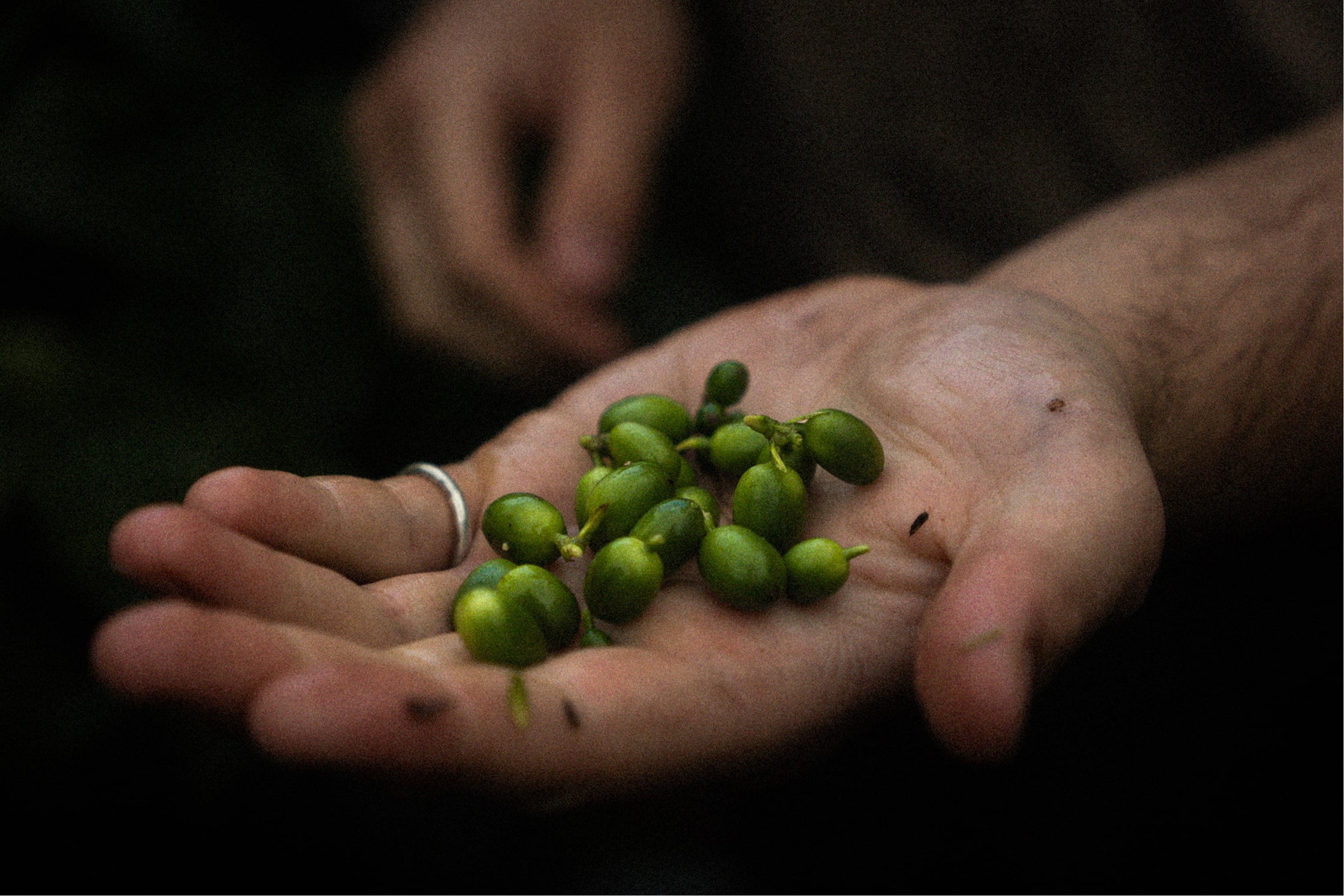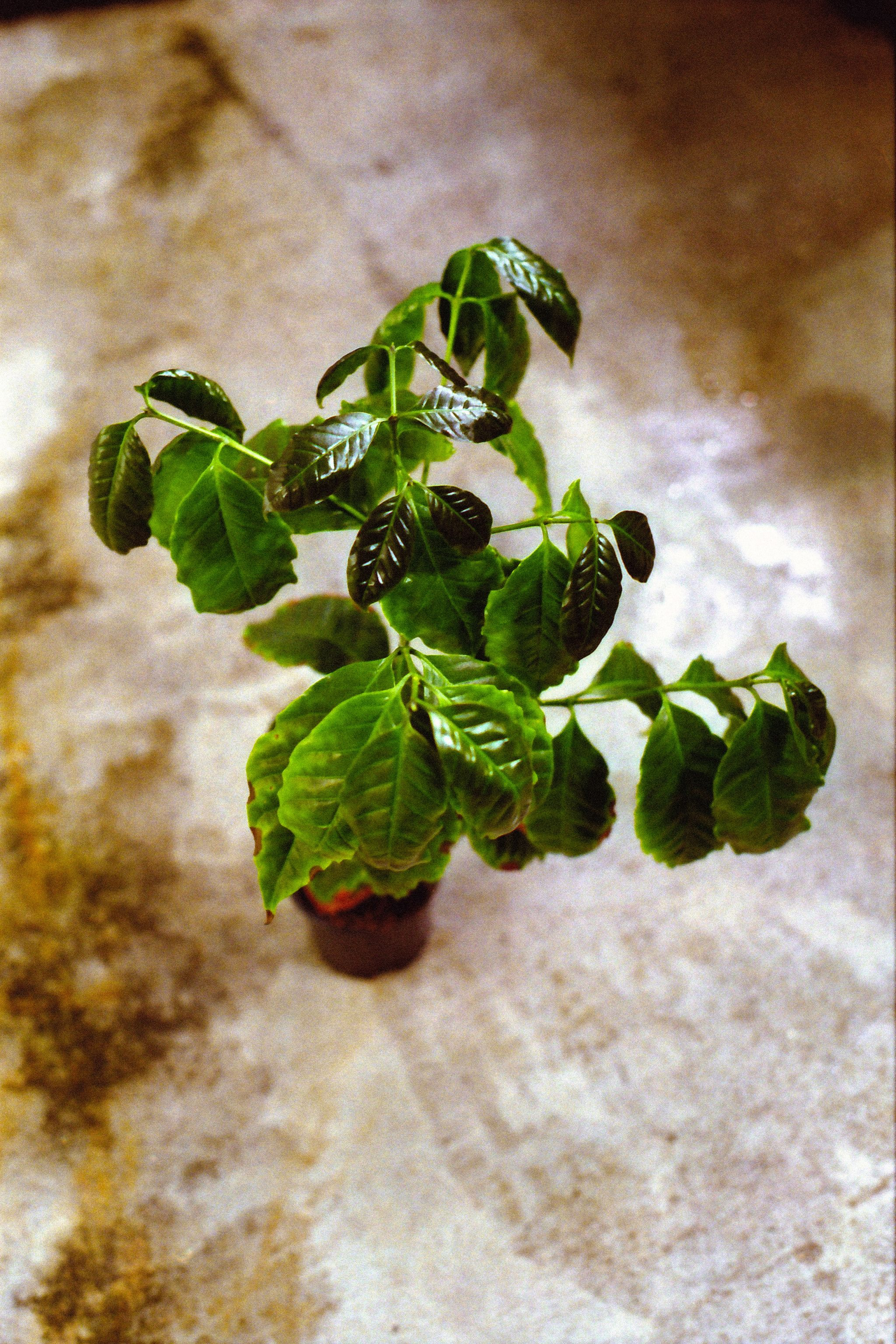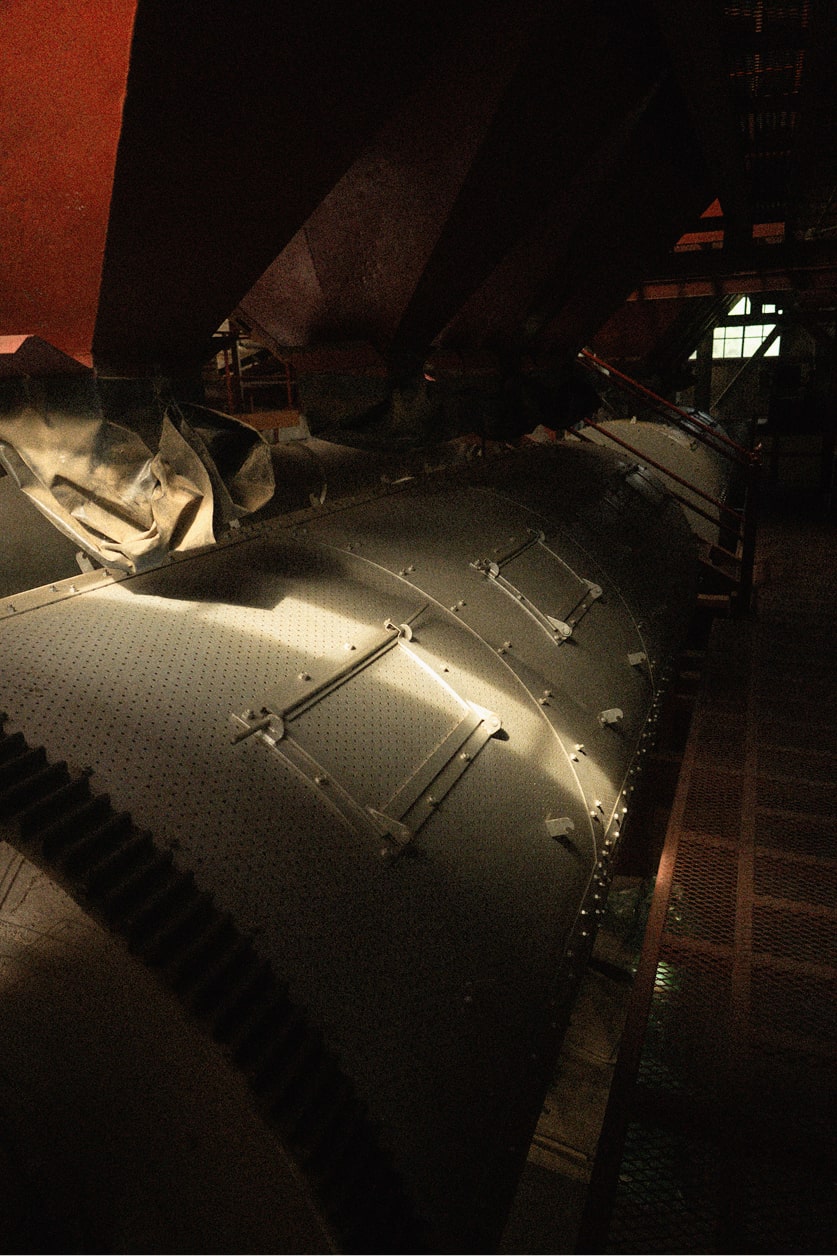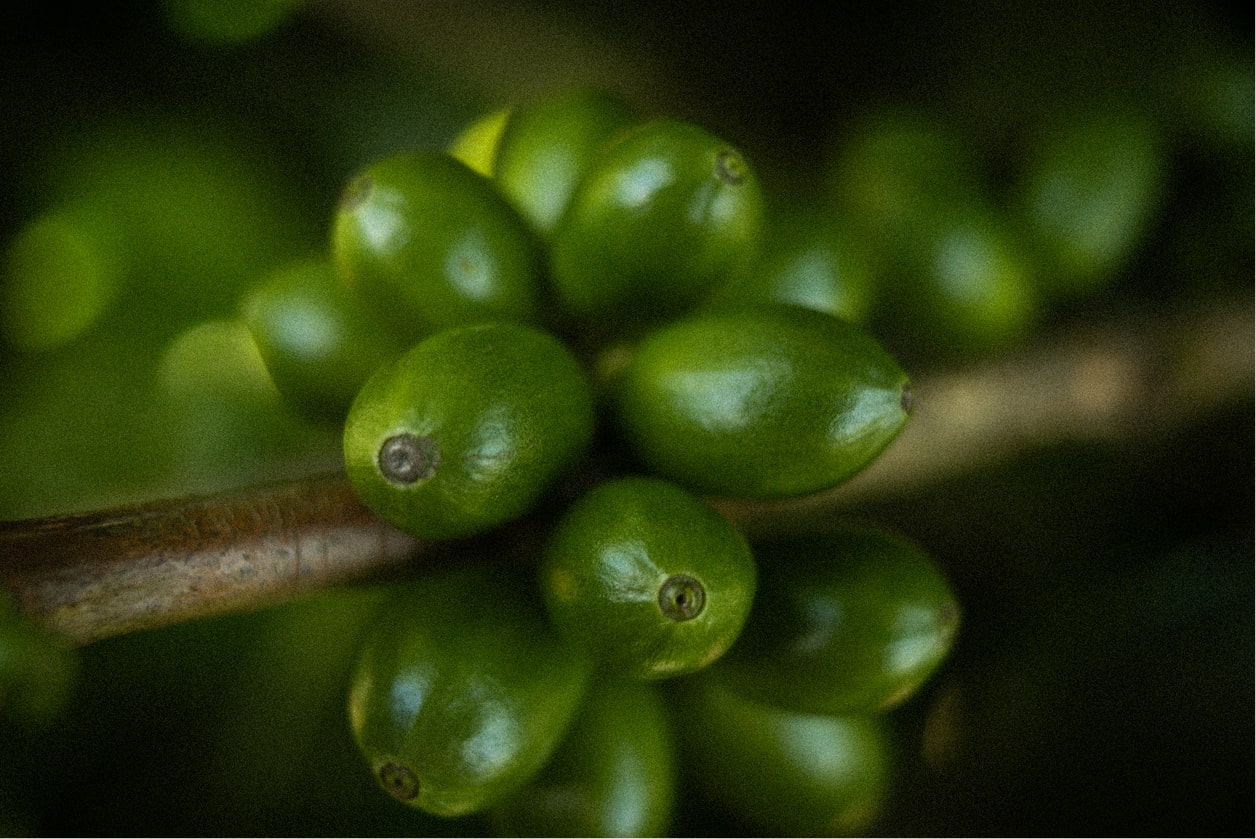Rootstock Experiment on Typica
Should coffee varieties stand on their own roots? We are excited to share the results of our latest experiment on grafting coffee trees on different rootstocks.
In many fruiting crops, like grapes or apples, farmers graft their chosen variety onto a rootstock to enhance vitality and resilience. Coffee, however, has traditionally been propagated from seed and planted on its own roots. Yet not all varieties develop strong, vital root systems, and some can greatly benefit from grafting onto a different rootstock. This can improve vitality, quality and resillience towards nematodes. For this trial, we investigated the yield, shoot growth and fruit- and seed quality of the variety Typica when grafted onto the rootstock RM009 compared to standing on its own roots. The results is a coffee with a fuller body and a brighter sweet expression - lifting the Typica variety to new heights.
Inside the box, you will find the two versions of the Typica - one standing on it's own roots and one grafted onto RM009. Both were processed using our signature cold-washed method, ensuring a fair comparison and a transparent, honest expression of the Typica variety.
What’s in the box
150g - Cold Washed Typica (Grew on own roots), DK
150g - Cold Washed Typcia (Grafted onto RM009), DK
20ml - Poma x Apaxlab Tonik (1) mineral concentrate
- Coffee will be roasted on August 26th and ship on August 27th
- DHL Express within 1-3 days from Denmark

Cold Washed Typica
A classic representation of the Typica variety from the POMA Research Station. Elegant yet bold, this lot beautifully showcase the typical characteristics of the variety. Ripe yellow fruits such as peach and apricot accompanied by a refined aroma of cardamom and a brightly vibrant acidity.
Cold Washed Typica x RM009
In this grafted lot of the Typica from the POMA Research Station, you will experience a singing version of the variety. The vitality from grafting on RM009 gives the variety an extra lift, amplyfying clarity and sweetness, while maintaining the elegance of the Typica. Expect gentle sweet florals, bright and sweet nectarine and peach aromas, and a long sweet finish.
Tonik [1], mineral concentrate
We have teamed up with Apax Lab to develop a specific water profile that enhances the flavor of our coffees to their fullest potential. This water blend is carefully crafted to balance and elevate all the unique qualities of the coffee beans.

Rootstock Experiment on Typica
Rootstocks are widely employed in perennial crops such as grapevine and apple to improve plant vigor, resilience, productivity and fruit quality. In coffee, however, rootstock use remains uncommon. In this study, we evaluated the performance of Coffea arabica var. Typica cultivated on its own roots versus Typica grafted onto the RM009 rootstock from the year 2023-2025.
Typica is often limited by relatively low vigor, modest yields, and susceptibility to root-related stress. In many other perennial crops, grafting scion varieties onto selected rootstocks has become standard practice, addressing challenges like these. Coffee has historically been propagated by seed and planted on its own roots. While this ensures varietal purity, it does not capitalize on the potential benefits of rootstocks. This study explores whether grafting Typica onto the RM009 rootstock can improve agronomic and sensory performance through increased vitality and vigour.

Poma Research Station
Our Coffee Research Station was established six years ago in a climate-controlled greenhouse in Fyn, Denmark. Within this greenhouse, we manipulate environmental factors based on algorithms that mimic plant processes. This allows us to study how coffee trees react to climate change while also maintaining a stable environment for investigating the impact of farming practices.

Cold Washed Process
The coffee cherries were subjected to an initial cold storage period of 48 hours at 8°C. This gentle chilling process preserves and intensifies the coffee’s aromas without inducing fermentation, thereby safeguarding its natural taste profile. Subsequently, the cherries were depulped and underwent thorough washing and drying at low temperatures in a pressurized, rotating tumble dryer. This meticulous drying procedure ensures uniformity, resulting in a clean and crisp final product.
Technical Data
Producer: Rasmus Madsen
Origin: Poma Research Station, Denmark
Altitude: 1800 masl
Varietal: Typica
Process: Cold Washed
Drying: 6 weeks slow drying in the climate chambers at low temperature
Harvest: Dec 2024
Brewing Advice
Rested coffee
We recommend resting our coffees for at least 10 days after the roast date, and we often find our coffee the most expressive around 3 weeks.
Water
To prepare, simply add 3.0g of the mineral concentrate to every 1 litre of high-quality demineralised water, then give it a good shake. This curated mixture will result in a mineral concentration of 90 parts per million (ppm) of perfectly balanced mineral compositions, optimising the brewing conditions for an exceptional coffee experience.
Brewing Parameters
We recommend using 13 grams of coffees to 200 grams of water. A coarse grind size approximately 900 micron. Brewing temperature 92C. Our brewing pattern is a 50g circular pour every 40 seconds. Total brew time is 3:00.






